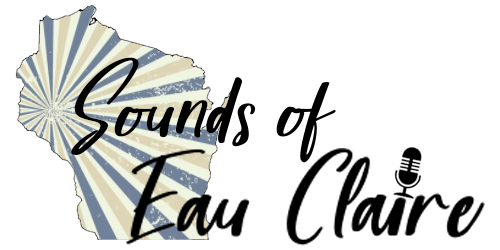-

Ivar Lunde is a local musician who had tremendous exposure to music since a young age from his family. Lunde is a retired UW-Eau Claire Professor and proprietor of Skyline Studios. This interview discusses Lunde’s early childhood life, his inspirations, current projects, and his view on the various fiscal troubles the arts and musicians face in the community. The interview also discusses his philosophy of music.
-

Howard “Guitar” Luedtke is a local blues musician. In this Oral History, he discusses his early life with music and how that influenced his music as an adult. He also talks about his professional music career and his personal interactions with the Eau Claire music scene.
-

This interview discusses the Chippewa Falls Oktoberfest. Lindsay talks about the connection that he has towards Oktoberfest and how he organizes and leads tour groups for the Munich Oktoberfest. Lindsay also talks about his experience of local music.
-

Terri Knudtson is the catering director for Blugold Dining. Knudtson discusses her life and career and catering for the Viennese Ball, from changes to the Ball and challenges in catering for such a large event. Additionally, Knudtson reminisces on working with Ada Bors and Knudtson’s own impact on the Viennese Ball.
-

Ron Keezer was a professor of Jazz at UWEC, faculty member of Shell Lake Arts Center, and owner of Really Good Music publishing company. In this Oral history, he discusses growing up in the Chippewa and how he interacted with music. He continued with his professional music career including his work with the Eau Claire Jazz Festival and the founding of Really Good Music.
-

Jones discusses his early childhood and how his brother and sisters inspired him via the guitar and the soul music they listened to as teenagers. Mr. Jones received his “baptism by fire” in the 1980s when he arrived to campus at the University of Iowa where his roommate was a versed band manager. In pursuit of a doctorate in English at the University of Minnesota, Mr. Jones experienced some of his best performances as a member of a band from 1990-1996. Upon his arrival in the Chippewa Valley Mr. Jones had the foresight of contributing to an already lively music scene consisting of blues and jazz amongst others. Bands such as The Jones Tones and Davey Jones & Friends allowed him to continue his poetic expression of music.
-

Linda John is the director of Visit Eau Claire. In this Oral History, she discusses her love for music as well as Visit Eau Claire's music promotion.Linda John is the director of Visit Eau Claire. In this Oral History, she discusses her love for music as well as Visit Eau Claire's music promotion.
-

The interview focuses on Hazen’s introduction to music, and how she rediscovered music once she became clean and sober. The interview discusses the Music Heals project that Hazen set up at Arbor Place, where she is a counselor.
-

This interview discusses Hazelton’s experiences in the marching band in High School during the 1940s. He spoke highly of his high school director who went by the name Sarge Boyd. Hazelton discusses his time in the Air Force where he played in the 604th Air Force Band. Hazelton discusses his involvement in bringing interest into the lackluster bands at the University. He also listed many bands that he was either involved in or knew of that were active in the 1950s and 1960s.
-

This interview discusses Hanson’s memories of her son’s (Josh Hanson) tribute album. The album contains original track along with two parody melodies that are focused around the Green Bay Packers. Hanson also elaborates on her son’s musical history including his previous bands from middle school through college.
-

This interview discusses how music was shared among Hable’s family because of the different instruments played by various members of his family. Hable talks about his grandfather’s musical background along with his grandfather’s bass drum that had been played in various dance halls and banquet halls in between World War I and II.
-

Colleen Garnevicus is the Director of Music and Family Choirs at Immaculate Conception. In this Oral History, Garnevicus discusses being possibly one of the first women in the UWEC Jazz Band, her career in music, and the role of music in her life. Garnevicus talks in length about her role as a Jazz director and music teacher, how music has changed in Eau Claire and on the university campus, and the importance of music and how it has developed in her eyes.
-

Ken Fulgione founding member of Eau Claire’s Coalition Blues and Tuesday Night Blues Festivals as well as the Chippewa Valley Blues Society. In this Oral History, he discusses his early career and his involvement with the Eau Claire Coalition Blues, Tuesday Night Blues, and the Chippewa Valley Blues Society.
-

Charles Farrell is the former director of student centers at the University of Wisconsin Eau Claire. This interview explores how Farrell joined the university and his work with the Viennese Ball. Farrell focuses on his role on the Ball committee, how he contributed to the event, what changes he facilitated, and his work in designing the new Davies Center and how it affected the Viennese Ball, as well as public feedback about these changes.
-

This interview discusses educational recordings on the history of jazz performers from pre-World War I through the 1950s that were played for student during breaks and exam periods. Egan also spoke about the live performances in the Eau Claire area.
-

Johannes Dahle is the former Director of Student Activities and University Programs, the former Director of University Centers, and the former Director of Development and University Relations. He discusses his career and how he came to the University of Wisconsin Eau Claire in the 1960s, changes to music, arts, and programs in Eau Claire, and his role in the founding of the Viennese Ball by coordinating with Ada Bors and Dr. Haas, as well as their original vision. Dahle also discusses the inclusion of alcohol in the event, planning the event, and the university’s involvement with the student’s planning of the event, such as financial allocations and involvement of the Eau Claire community.
-

Sean Carey is a UWEC alumni and the drummer for Bon Iver. He discusses what brought him to Eau Claire and his early interest in music and how he joined Bon Iver. Additionally, Carey explains the influence Eau Claire had on the selection of genre for Bon Iver, how the city received the band, and the overall impact of the town on Bon Iver. Carey also goes in depth in exploring the effect of Eau Claire on his solo career and music in general.
-

Ernest Broeniman is the director of Dorf Kapelle, a famous polka band in Wisconsin. He talks about his early life and interest in music, especially polka and how he was influenced by music in Germany and Austria. Later, Broeniman discusses his involvement in the Viennese Ball, from how he was introduced to the event to their current involvement and what they play at the Ball. Dorf Kapelle and their works and organization are also discussed in length.
-

Adam Bors, an Ohio native, moved to Eau Claire with his wife, Ada Bors, when he was offered a job at the University. Adam discusses his wife’s involvement in the community and how she came up with the idea to create the Viennese Ball in Eau Claire. Bors discusses his late wife’s involvement in the event and how the Viennese Ball has changed overtime.
-

Jim Bischel is a local festival organizer, responsible for organizing Country Jam and Blue Ox. In this Oral History, he discusses the history of the festivals he organizes as well as the music in the Chippewa Valley.Jim Bischel is a local festival organizer, responsible for organizing Country Jam and Blue Ox. In this Oral History, he discusses the history of the festivals he organizes as well as the music in the Chippewa Valley.
-

In this second interview with Larry Barr, he elaborates upon his involvement with the Eau Claire music festivals, Shake, Rattle and Roll and Country Jam. He also discusses the future
-

An oral interview of Larry Barr, an Eau Claire resident that is recognized for improving and promoting the cities music scene from the 1960s to the 1980s. Throughout the interview, Barr describes his history of owning various establishments, one being "The Barr." Barr talks about how he was always tracking the "trends " when it came to music, both in the way it was performed, what genre it was, and who was listening to it the most. Barr's use of informal settings (one example being the mobile disco he build) shows just how veritable informal music venues can be, as well as shows how popular they've become in the last decades.
-

Robert Baca is a professor of trumpet and director of jazz studies at the university of Wisconsin Eau Claire. This Oral History examines Baca’s experiences with music during his upbringing, including his time as a freelance musician and how he came to UWEC. Baca then discusses the music culture of Eau Claire which includes a large focus on the Viennese Ball. Baca gives his first impressions of the event, the importance of the Ball to the music department and students, and what it was like working with Ada Bors.
-

Bob Baca is a professor of trumpet and Jazz at UW-Eau Claire. In this Oral History he discusses his early music career leading up to and including his time at UWEC. He also discusses his work with the Jazz program and the Eau Claire Jazz Festival.
-

Jason Anderson is a producer and event organizer for music festivals in the Chippewa Valley. In this Oral History he discusses organizing the Eaux Claires music festival as well as working with the band Bon Iver to get the festival off the ground.

























